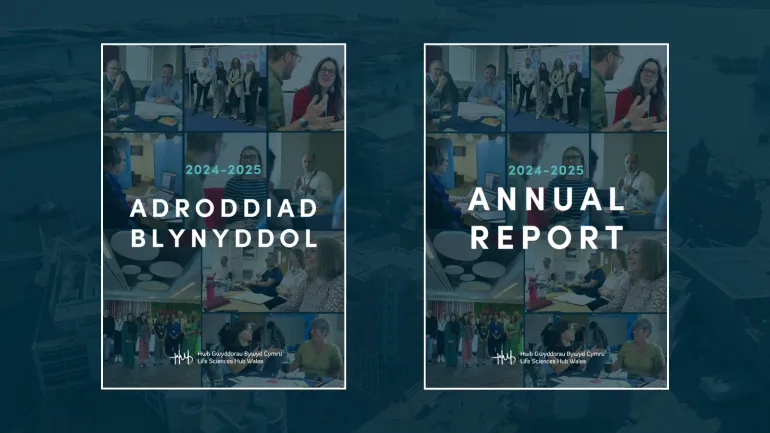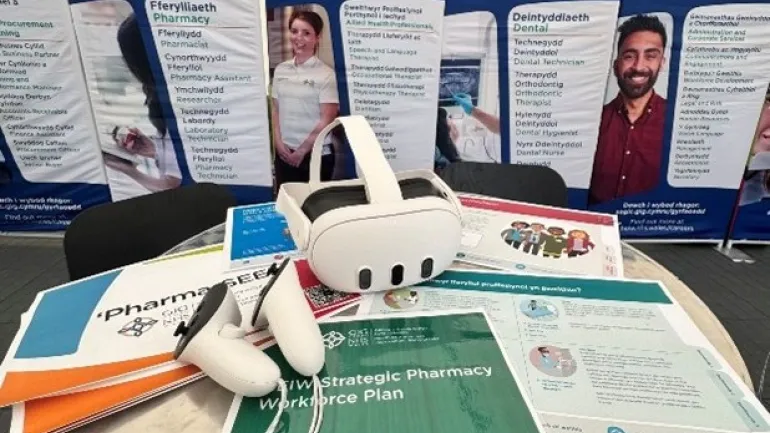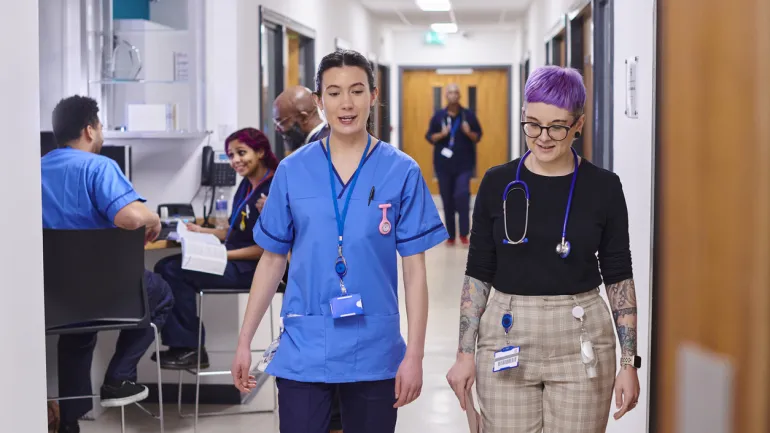Embracing the power of AI and machine learning will unlock an enormous resource of real-world data that will create new opportunities to improve healthcare.
AI offers opportunities including the development of new diagnostics that will lead to earlier diagnosis and intervention, better use of data to improve clinical outcomes and enhance patient experiences, and insights into healthcare processes that will identify potential cost efficiencies. Already commonly used in other sectors for logistics, supply, and planning support, machine Learning and AI are poised to deliver efficiencies and streamline services for health and care organisations.
For example, the use of advanced robotics in surgery, which allow surgeons to undertake less invasive and more precise procedures, is already improving clinical outcomes for patients and reducing the cost of procedures in Wales.
The Challenge
By 2030, one in four people in Wales will be over 65 – that’s an estimated 700,000 people. It is important that we adopt new technologies that will help the population stay healthy, happy, and active throughout their lives. The importance of the challenge is reflected in Welsh Government’s ‘A Healthier Wales: our plan for Health and Social Care (2018)’, the ‘Strategy for Older People in Wales 2013-2023' and ‘The Social Service and Well-Being Act (2014).
Life Sciences Hub Wales intends to address the challenge of healthy ageing with innovation in service delivery and driving the adoption of assistive technologies or technologies that support remote monitoring and health maintenance.
The Opportunity
Welsh Government’s focus on the digital transformation of health and care services is an important commitment, which supports the significant infrastructure and resource required for Wales to capture benefits from the digital and AI revolution.
We know that the Welsh health and social care system can rapidly embrace and deploy digital solutions to drive service delivery improvements. During the COVID-19 pandemic, remote monitoring and virtual wards helped relieve pressure on the NHS and primary care, and relationships with industry were crucial to these efforts.
The opportunity to deliver rapid improvement and innovation, which will ultimately lead to higher value health and social care, through partnerships with industry is enormous. By carefully managing access to high quality, multi-layered data (such as through the National Data Resource and other data repositories) Wales will also attract industry and create opportunities to develop new products and businesses in Wales.
Digital Health and Care Wales are working towards a number of application programming interfaces (APIs), which are tools, definitions, and protocols for integrating application software and services into health and social care in Wales.
Machine learning offers great promise for the interpretation of large, combined data sets, which can be applied to diagnostics, medical imaging analysis, patient medical records, logistics and genetics. AI systems can rapidly interpret radiology images, which will help reduce backlogs and enable our highly trained clinicians to focus on more complex cases. This technology could go far in addressing the current shortages of radiologists, complementing initiatives such as the National Imaging Academy Wales.
Life Sciences Hub Wales can access key industry partners to support health boards and social care organisations to deliver the projects that support this transformation. We have strong relationships with small and large digital healthcare businesses, and can help match their solutions to the needs of health and social care. We also offer project management support to facilitate innovation adoption.



